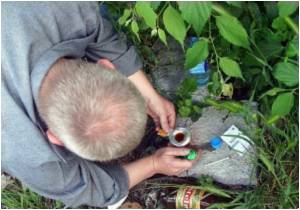The occurrence of co-use of marijuana and tobacco in young adults is increasing over the years. Cessation counseling sessions should be targeted as main intervention to cut down on this alarming usage

The experts from the University of California, San Francisco (UCSF) are of the opinion that a big increase is noticed in the young adults using both tobacco and marijuana as compared to its previous statistics of 35 percent.
One of the researcher stated, "The data presented are far more consistent with what I hear simply by speaking with thousands of students of middle and high school age," noted Stephen Dewey, an addiction researcher and director of the Laboratory for Behavioral and Molecular Neuroimaging at the Feinstein Institute for Medical Research in Manhasset, N.Y. "The importance of getting accurate data like these cannot be stressed enough, as treatment programs and the financial support required for them are often guided by studies that demonstrate both prevalence and risk."
The study was conducted online via Facebook, Craigslist and paid email advertising campaign and the participants were allowed to keep their identity secret. It therefore resulted in being a source of more authentic and accurate information provider regarding the usage of tobacco and marijuana.
Danielle Ramo, the principal investigator of this study and a postdoctoral scholar in the UCSF Department of Psychiatry mentioned, "We were curious whether rates would be different in our study where we reached out through social media and the Web. And rates were much higher, which shows the problem might be larger than we realize."
The study was conducted in two phases.
The study showed that out of 68 percent of the participants who smoked daily, 53 percent confessed that they also consumed marijuana during the past month.
Judith Prochaska, senior study author and an associate professor of psychiatry at UCSF stated, "Residence in a medical marijuana state was unrelated to the prevalence of marijuana use as well as the co-use of marijuana and tobacco in this young adult sample. The prevalence of marijuana use also did not differ by respondents' age, income or gender."
Bruce Goldman, the director of Substance Abuse Services at The Zucker Hillside Hospital in Glen Oaks, NY mentioned, "Those who suffer from mental health and substance abuse problems have an extremely high rate of nicotine dependence. It stands to reason that those seeking help to quit smoking also would have high rates of substance abuse including cannabis."
A difference of opinion existed among the authors regarding the need of programs to help young adults to quit smoking and discourage the usage of marijuana. According to them the next step was to introduce effective therapies and counseling in Facebook that would help people to quit their addiction.
Prochaska finally said, "Adapting the social media aspect into intervention and incorporating the social environment are new ways to approach finding the most effective means for treatment."
Dr. Judith Prochaska concluded that the sample of young adults showed high levels of marijuana and tobacco irrespective of age, gender, ethnicity or income.
The respondents should take the services of a qualified counselor or a rehabilitation centre.
Reference:
Prevalence and co-use of marijuana among young adult cigarette smokers: An anonymous online national survey; Danielle Ramo et al; Addiction Science & Clinical Practice 2012
Source-Medindia















